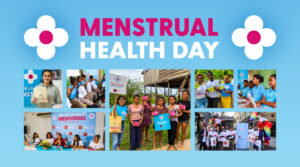You have been diagnosed with HIV and now you must take another big step, perhaps more important than going for a test: start and adhere to antiretroviral treatment. Adherence to long-term treatment is one of the greatest challenges in care, since taking medication for life can be a very great emotional burden.
So if you feel fear, concern or even annoyance at the thought that you will have to take pills for many more years, it is normal, and it happens even in diseases that are temporary and have a cure.
Make the process easy
Do not forget that the success of antiretroviral treatment is the consistency in taking it. This taking of medications, on time and in a timely manner, is called adherence to treatment. The drugs need to maintain a certain concentration in your blood, and if for any reason you stop treatment, that concentration drops and becomes unable to control the virus.
To help improve the situation, the government of Argentina, through its Ministry of Health, issued the Living Positively guide, which includes a series of tips that will facilitate your adherence to treatment:
- Use daily pillboxes so you have better control of when and how you should take each medication.
- Create a schedule with your schedule and activities, and adjust your medication intake to them (we’ll explain why below).
- Keep a diary of your treatment. After you’ve been to your doctor’s office, write down what medications you were given and how you should take them. At first this may seem impractical, but over time it will serve as a log of how your treatment has been.
- Set alarms on your cell phone to remind you of shooting times.
- Schedule the times of taking into account the times of your days off, since that is when your sleeping habits, for example, will be different.
- If these strategies don’t work for you, join a self-support group (with other people with HIV), whose members can tell you about their experiences and give you new ideas.
Get over the drawbacks
Like many other treatments, antiretroviral can have side effects that some people find too bothersome to take consistently. But don’t worry, as research has progressed, newer antiretroviral have milder and more tolerable side effects.
Currently, many people taking antiretroviral find that the most severe side effects (nausea, vomiting, diarrhea, headache) were experienced during the first two weeks of treatment.
In addition to being patient with these first days, you could find yourself with some inconveniences related to your treatment, and here are some tips to cope with them:
- What to do if you vomit? If vomiting occurs within an hour of taking your medicine, it is usually advised to take it again. Other times it can be difficult and it would be best to wait a while until you feel better.
- What to do if you miss a shot? If you realize you forget when the next dose is very close, it is not recommended that you take a double dose, as this could even harm you.
- What to do if you miss the time of the medicine? If, on the other hand, you were a little late on your dose and the next one is still several hours away, take the one you missed and take the next one at the right time.
- What to do if I don’t have medicine? Assume that your well-being and health now depend on this treatment, and commit yourself to take it well. Try to anticipate when your medication supply will run out so that you can go to replace it before the one you have runs out.
- What to do if I have to travel? Make sure you have enough medicine with you and a little more, in case something unforeseen arises. You can also find out in advance if you can get medication where you’re going.
The fact of taking a medicine for a long time requires effort and perseverance, and in the case of antiretroviral treatment, it can help you to know that, if you feel better, it is thanks to that treatment, and that if you stop it, HIV will have a chance to replicate and can affect not only your immune system, but also organs as important as the brain.
So now you know, your medications are your best allies for a full life with the best possible health. And if you have problems starting or resuming your treatment in the institutions of your country, at AHF Latin America and the Caribbean we can help you. Just come to our offices or write to us on Whatsapp, we are in 11 countries in the region.







